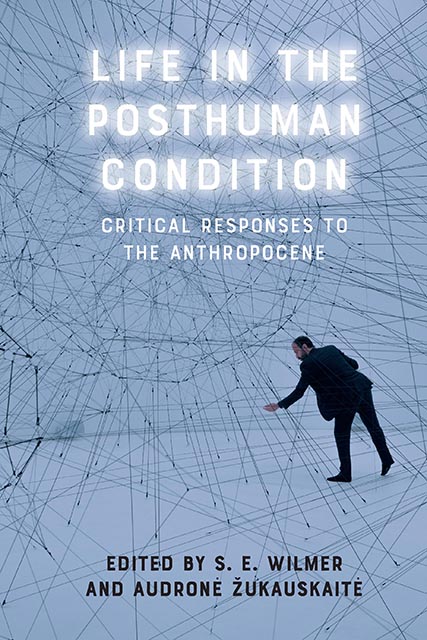6 - On the Punctuation of Organisms: The Case of Helmuth Plessner
Published online by Cambridge University Press: 20 October 2023
Summary
When approaching the question of posthumanism, it is good to take stock of what it means to be human as opposed to an animal, plant or inanimate matter, let alone whatever might come after the human. Yet with respect to the distinction between various forms of living and nonliving entities, Western philosophy has an undistinguished track record, especially in the modern period. More often than not, what philosophers give us is little more than commonsensical assumptions ontologised and repackaged as fresh insight. One especially disappointing example is Martin Heidegger's celebrated 1929/30 Freiburg Lecture Course, The Fundamental Concepts of Metaphysics (Heidegger 2001). In the process of explaining his concept of world, Heidegger declares that stones are ‘worldless’, animals are ‘poor in world’ and humans are ‘world-forming’. Along with the total omission of plant life from this schema, we learn nothing at all about world-forming, while any desired clarity on what world poverty might mean is replaced by a series of captivating anecdotes about animal behaviour drawn from the research of others.
Yet there is no reason to denigrate Heidegger in particular, since others have done little better, no matter how great their historical status. Aristotle in De Anima articulates the soul into nutritive, perceptive and intellective parts, and despite his always admirable precision, we are left with the same everyday distinction between vegetable, animal and human that just about anyone could produce without studying his work (Aristotle 2017). St Thomas Aquinas expands the Aristotelian map slightly by dividing animals into those that cannot move – shellfish, in his view – and those that can (Aquinas 1948), but this simply gives us four basic kinds of life rather than three. At the dawn of modern philosophy, Rene Descartes introduced a much starker picture with an absolute rift between rational cognitive beings and extended physical matter (Descartes 1993), with the result that animals and plants are reduced to senseless mechanisms although experience strongly suggests the contrary. Baruch Spinoza opened the door slightly for animals, displacing human desires from the centre of the cosmos, though without doing much to shed light on the nature of animal experience specifically (Spinoza 2018). That brings us to recent philosophy in both its analytic and continental branches.
- Type
- Chapter
- Information
- Life in the Posthuman ConditionCritical Responses to the Anthropocene, pp. 111 - 129Publisher: Edinburgh University PressPrint publication year: 2023



